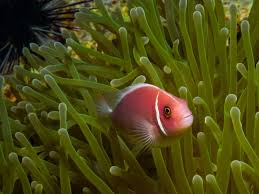Tea is more than just a beverage – it is a cherished tradition, a daily ritual, and a cultural cornerstone in many parts of the world. In China, tea has been consumed for thousands of years, celebrated not only for its flavor but also for its numerous health benefits. Among the most profound of these benefits is tea’s ability to slow the aging process. Whether it’s through antioxidant properties, anti-inflammatory effects, or skin rejuvenation, fresh Chinese tea has been hailed as a natural remedy for aging and its associated challenges.

In this article, we will explore the different types of Chinese fresh tea and how they help slow down the aging process. We will delve into the science behind the antioxidants in tea, the impact of tea on skin health, and its broader effects on longevity. By understanding the incredible potential of tea, we can appreciate how this ancient beverage can be a vital component of a healthy lifestyle, helping us maintain vitality and youthful energy well into old age.
The Rich History of Tea in China
Tea has a rich and long history in China, stretching back over 4,000 years. Legend has it that tea was discovered by Emperor Shen Nong when tea leaves from a wild tree blew into a pot of boiling water he was preparing. Since then, tea has evolved from a medicinal herb to an integral part of Chinese culture, cuisine, and daily life.
From the Tang Dynasty (618–907 AD), tea became central to Chinese society. Not only was it appreciated for its soothing taste, but it was also revered for its medicinal properties. As time passed, tea was found to contain various bioactive compounds that offer health benefits, some of which are believed to have anti-aging effects.
Chinese Fresh Tea: A Natural Fountain of Youth
Chinese tea comes in a variety of forms, each with distinct qualities and health benefits. The two most notable types of tea are green tea and oolong tea, both of which have been studied for their potential in promoting healthy aging.
Green Tea: A Powerhouse of Antioxidants
Green tea, particularly varieties like Longjing (Dragon Well) and Biluochun, is one of the most renowned teas in China. It is made from the Camellia sinensis plant and is minimally processed to preserve its natural compounds, including polyphenols and catechins. The primary polyphenol found in green tea, epigallocatechin gallate (EGCG), is considered one of the most potent antioxidants known to science.
Antioxidants and Aging
The aging process is marked by a gradual decline in the body’s ability to combat oxidative stress – a condition caused by an imbalance between free radicals (unstable molecules) and antioxidants (molecules that neutralize free radicals). Free radicals can damage cells, proteins, and DNA, leading to premature aging and the development of age-related diseases. The high concentration of antioxidants, especially EGCG, in green tea helps to neutralize these free radicals, potentially slowing the aging process.
Green tea’s antioxidant properties can protect the skin from UV damage, reduce wrinkles, and promote a youthful complexion. Studies have shown that the polyphenols in green tea can help improve skin elasticity, increase collagen production, and prevent the breakdown of existing collagen, which is crucial for maintaining a firm and youthful appearance.
Oolong Tea: A Balanced Approach to Longevity
Oolong tea, which is partially fermented, is another popular type of tea in China. It is a hybrid between green tea and black tea, offering a wide range of health benefits. Famous varieties such as Tie Guan Yin (Iron Goddess of Mercy) and Da Hong Pao are not only prized for their unique flavors but also for their contribution to promoting longevity.
Anti-inflammatory Properties
Inflammation is one of the key factors that contribute to the aging process. Chronic inflammation has been linked to a variety of age-related diseases, including arthritis, cardiovascular diseases, and cognitive decline. Oolong tea has anti-inflammatory properties that may help reduce the risk of these conditions. By regulating the body’s immune response, oolong tea helps maintain a healthy inflammatory balance, preventing the onset of inflammation-induced aging.
Research also suggests that oolong tea can reduce the accumulation of harmful proteins associated with aging, such as amyloid-beta, which is linked to Alzheimer’s disease. The combination of anti-inflammatory and neuroprotective effects makes oolong tea a powerful ally in supporting cognitive health as we age.
White Tea: Delicate Yet Powerful
White tea is another type of Chinese tea that has gained popularity in recent years for its health benefits, particularly its role in anti-aging. Made from the young buds of the Camellia sinensis plant, white tea is the least processed of all tea types, making it rich in antioxidants.
Skin Health and Protection
White tea is known for its ability to protect skin from the damaging effects of aging. It contains high levels of polyphenols, which help reduce the formation of free radicals and slow the degradation of collagen in the skin. This, in turn, helps prevent sagging and wrinkles. Additionally, white tea’s anti-inflammatory properties can reduce skin irritation, puffiness, and redness, contributing to a more even skin tone and a youthful appearance.
The high levels of catechins in white tea also support the skin’s natural ability to repair itself, promoting cell regeneration and hydration. By drinking white tea regularly, you can help your skin stay youthful, resilient, and glowing.
The Science Behind Tea’s Anti-Aging Effects
While tea has been used for centuries as a health tonic, modern science has finally begun to uncover the biological mechanisms behind tea’s impressive anti-aging properties. The key lies in the high concentration of antioxidants and bioactive compounds found in Chinese fresh teas, which provide a range of benefits for the body, particularly when it comes to slowing the aging process.
Cellular Health and Longevity
One of the primary mechanisms through which tea helps slow aging is by promoting autophagy, the body’s natural process of cleaning out damaged cells. By stimulating autophagy, tea helps remove dysfunctional cells that can contribute to aging and disease. This process is essential for maintaining overall health and promoting longevity.
Studies have shown that the polyphenols in tea can also regulate the activity of sirtuins, enzymes that are involved in regulating cellular processes like DNA repair and metabolic function. By activating sirtuins, tea helps protect cells from the damage caused by aging and promotes better overall health.
Cardiovascular Health and Aging
As we age, the risk of cardiovascular diseases increases, partly due to the accumulation of oxidative stress and inflammation. Tea’s rich polyphenol content can help protect the cardiovascular system by improving blood vessel function, reducing inflammation, and lowering blood pressure. Chinese teas like green tea and oolong tea have been shown to reduce the risk of heart disease by improving cholesterol levels and protecting against oxidative damage to blood vessels.
Tea’s Role in Weight Management and Anti-Aging
Maintaining a healthy weight is crucial for aging well. Excess body fat, especially around the abdomen, has been linked to a variety of age-related health issues, including diabetes, hypertension, and joint problems. Tea can play a significant role in weight management, with various types of tea offering metabolism-boosting properties.
Green Tea and Weight Loss
Green tea is particularly effective for weight loss due to its high concentration of catechins, which help boost metabolism and increase fat oxidation. Drinking green tea regularly can aid in fat burning, particularly when combined with a healthy diet and regular exercise. Maintaining a healthy weight reduces the strain on the body’s organs and joints, contributing to overall longevity and vitality.
Conclusion: A Cup of Youth in Every Sip
The anti-aging properties of Chinese fresh tea are undeniable. From the antioxidants in green tea that protect the skin to the anti-inflammatory effects of oolong tea that support cognitive health, tea offers a wide array of benefits that can slow the aging process and promote a long, healthy life. Whether it’s enhancing skin elasticity, protecting cardiovascular health, or helping to manage weight, Chinese teas provide a natural and holistic approach to aging gracefully.
As the global fascination with tea continues to grow, more people are recognizing its remarkable ability to promote health and slow the aging process. By incorporating Chinese fresh tea into your daily routine, you can reap the benefits of this ancient beverage and enjoy a youthful, vibrant life for years to come. So, the next time you sip a cup of tea, remember that you are not just indulging in a delicious drink – you are also nurturing your body and mind, ensuring that the passage of time is kind to you.









